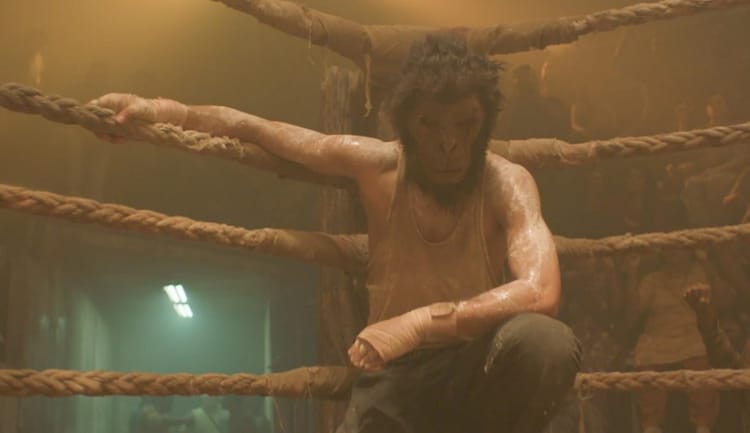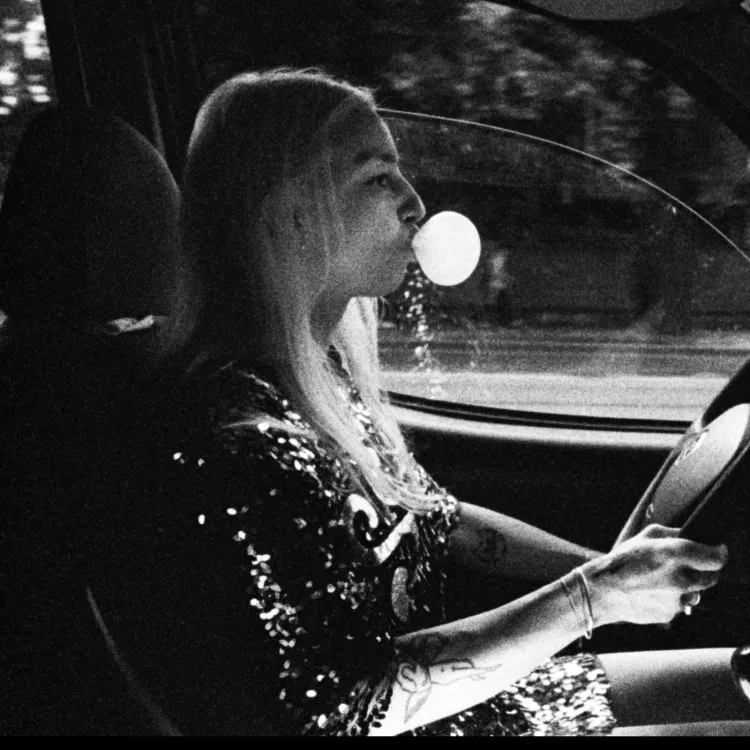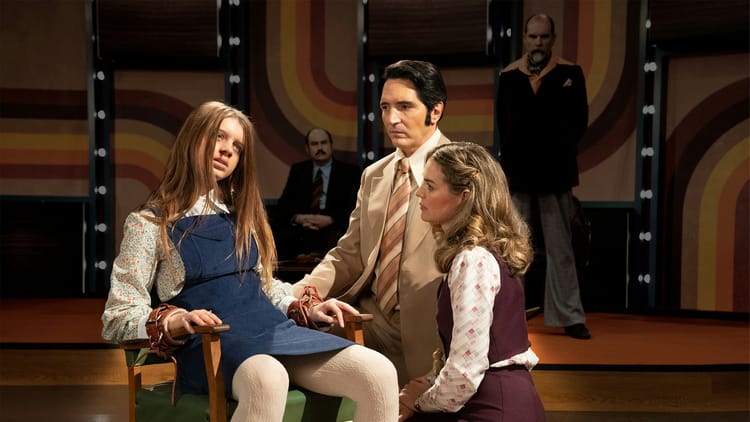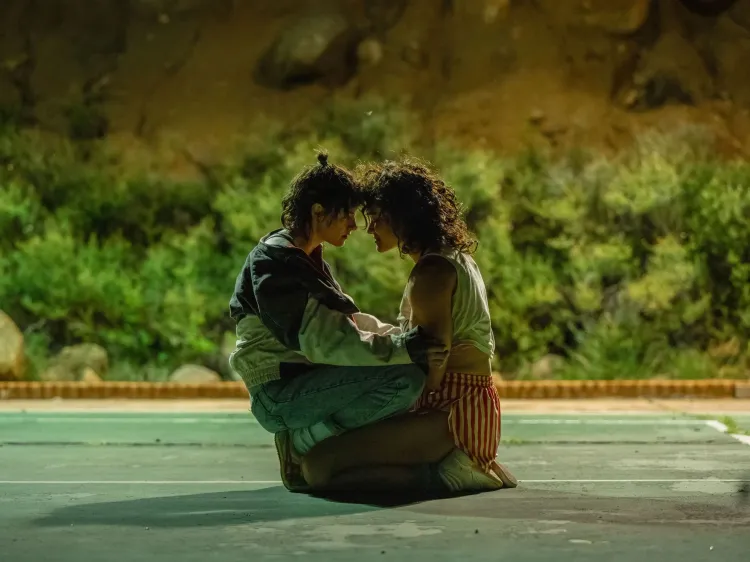RRR
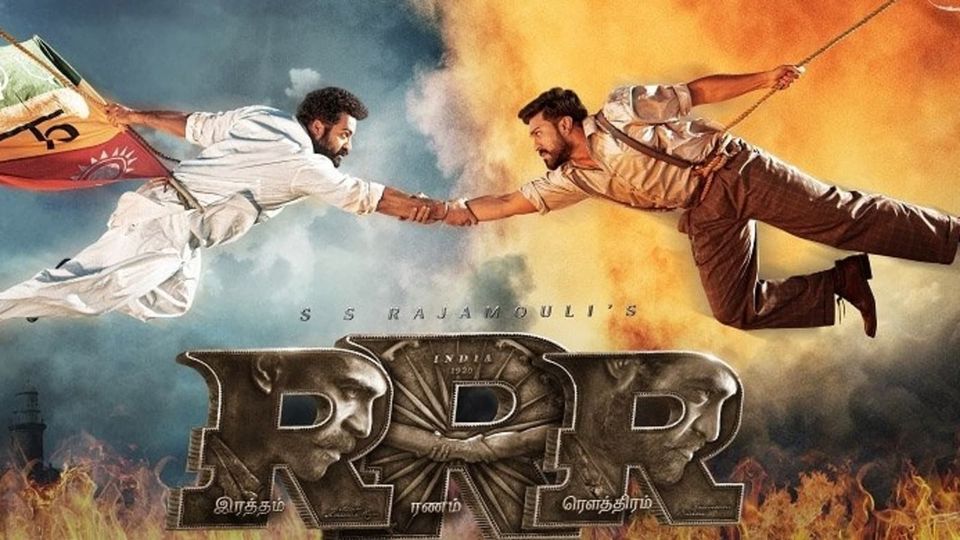
The latest trend in the American action blockbuster is to rely on material outside of your movie to create stakes. Drama arises not from what happens internally within your movie, but from the characters or actors brought from outside. There are the obvious examples: The three Spider-Mans in "Spider-Man: No Way Home" (spoilers for Spider-Man if you're one of the four people globally who remains unspoiled), the retconning/resurrection of Han in the Fast and Furious franchise, the entire premise of "The Expendables". Even a gem of the genre, "John Wick", needed the star power of Keanu Reeves, returning to a role adjacent to the gun-toting Neo of "The Matrix".
In American cinema, it seems more and more like the action blockbuster can no longer stand on its own two feet. It must be propped up by callbacks, cameos, easter eggs, and years of audience buy-in, lest they see the flaws in the formula and the whole thing comes toppling down.
Then there's "RRR", a self-contained, riveting, delightful, explosive spectacle of a movie, depicting India in the 1920's under British occupation. The only thing you may need to know for maximum enjoyment, but that "RRR" will tell you anyway, is that colonialism sucked.
I don't mean to diminish the undeniable careers of the film's two leads, N. T. Rama Rao Jr. and Ram Charan, who have had storied careers as leading men in India's film scene. But you don't need to know their careers to enjoy this movie. Their characters' fears, motivations, and arcs all exist clearly within the movie. And what great, big, loud characters they are.
S. S. Rajamouli's "RRR", which stands for Rise Roar Revolution, is not interested in subtlety. N.T. Rama Roa' Jr's Bheem and Ram Charan's Rama are explicitly related to water and fire. We first see Bheem in the reflection of a pond. An effigy of a British soldier is burning when we meet Rama. Water. Fire. Before Rama's first scene, one of the R's in RRR's title card becomes the R of FIRE, which also is aflame. Before Bheem's introduction, the R of RRR becomes the R of WATER, made up of a swirling wave. Fire. Water. And when the two inevitably are at odds? Fireworks go off behind Rama, launching a flaming torch into his hand. A stray firework strikes the fountain behind Bheem, the porcelain cracking revealing the hoses underneath, one of which whips into Bheem's hand. Fire. Water.
There is something delightfully brazen about "RRR". Less is not more. More is more. That comes into play with the elemental imagery relating to their rivalry. But more potent is the film's depiction of their friendship. To describe it as homoerotic would undersell the intimacy between these two characters. It is the ultimate action bromance, unencumbered by fears of vulnerability, of physical touch between men. They hug, they cry, they hold each other. And though there is rivalry, it never manifests as a dick-measuring contest, a consistent feature of other male-driven action blockbusters. Who's got a bigger gun? Who's taller? Who can bag the hotter lady? "RRR" doesn't care for that. It's about two men, who, as the first musical number tells us, are destined for friendship as much as they are doomed for conflict.
That brings us to the music, which is just as overt in this movie as its characters. M.M. Keeravani's pounding, driving rhythms move this film forward, with barely a moment in this movie unscored. His percussive beats punctuate every fight, every moment, a musical motif that integrates into the plot. And if there are lyrics, they are explicitly telling you what comes next. It's like epic poetry, setting up every conflict to come. The one song that doesn't portend an omen is "Naatu Naatu", an electrifying dance and music sequence. I was grinning throughout, as Rama and Bheem danced circles around the British men attempting to flaunt their physical prowess. It's a towering achievement, a clip worth watching just by itself, to see the type of radical sincere joy that this movie is about. Here's the link. You should stop reading this review for five minutes so you can watch it.
I'm not kidding.
It'll only take five minutes. And it'll be so much better than me fumbling to explain what is so vibrant about it.
Did you watch it yet?
Okay.
Since you watched it, we can talk about the British in it. Because that's another thing "RRR" is not subtle about: the villainy of the British Empire. The colonials in this movie are greedy, vindictive, and violent, almost cartoonishly so. It's historically accurate, though I doubt their enunciation was as pronounced as this film's actors.
If I had to point out a flaw in "RRR", if there was a loaded British rifle with a bullet worth one pound sterling pointed at my head, I would have to say, Jennifer, the film's lone "good" British person, is its weakest character. Her character sticks out like a sore thumb, her motivations unclear, especially compared to the rest of the film's side characters. Perhaps this is due to the fact that Jennifer, unlike every other character, doesn't have to deal with the oppression of colonialism. Or maybe it's because she feels like a character built to ensure there is ostensibly some straightness in this movie.
And honestly, you'll forget about Jennifer amidst the film's many terrific action set-pieces. I could gush for thousands of words about what makes these scenes so outstanding. How they're driven by character, how they're choreographed to a T, how they utilize existing elements of the film, return to past motifs, have such clarity in vision and rhythm, investigate the tension between tradition and modernity, move furiously along to the film's overwhelming score, while also being an outrageous, ridiculous time. They make every dude-bro action scene of recent memory look like an episode of the Rugrats. They're an uproar, a visual spectacle, extravagant, all without needing anything else than what the movie has already introduced.
Excess in cinema is often cited as a detriment. Showing, not telling, too overt, a patronizing cheap trick, too "much". But that never struck me as an issue with "RRR". Its commitment to abundance is bold, imaginative, and importantly, sincere. It never talks down to its viewer. It wants to delight you, and it will succeed. Because at the end of the day, amidst the colonial conflict, the means of revolution, the path to freedom, the tigers, the wolves, "RRR" is about two bros who love each other. And who can say no to that?
